Why It's Time To Raise Ducks For The Garden – Move Over, Chickens!
Others might call you quackers, but if you get some ducks for the garden, you can enjoy a host of plot-friendly benefits. Just follow our expert guide to make the most of these unique creatures
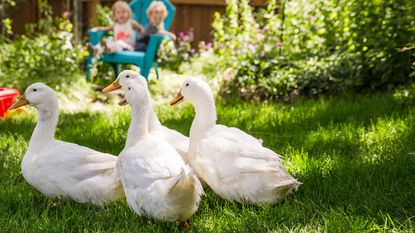

Farm animals may not always seem like the obvious choice for backyards, but choosing ducks for the garden is less strange than you might think. Indeed, these creatures can turn out to be great companions and highly beneficial for your plot. You may already know that they are friendly, intelligent animals, but there’s a whole lot more to gain from having them around if you think you can find the space.
Whether you are looking for novel ways to heighten your pest controls or just a novel way of acquiring fresh eggs, these are some of the most interesting animals you can add to your garden or yard. For anyone keen to enhance their wildlife garden potential, ducks are ideal. Find out why these fascinating birds can add to your gardening exploits.
Are Ducks Good for Gardens?
Ducks in the garden can be a good investment, but be aware of what it takes to keep them safe and healthy. Raising backyard chickens is a pastime that has become very popular, but it can also be a problem in certain areas. Many animal rescues have seen a big uptick in abandoned birds as homeowners realized they had bitten off more than they could chew. The same could be said for ducks if you aren’t prepared.
Still, if you are ready to take on a backyard animal, ducks are a great option. They can provide several benefits for a garden, as long as you do it right and realize that animals like these are a true commitment. They will depend on you for the rest of their lives, and they do need adequate space and resources to be truly happy.
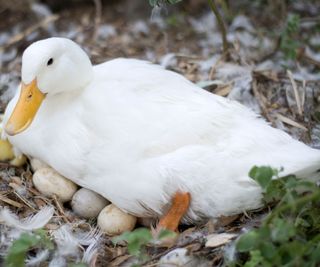
Benefits of Ducks for the Garden
If you’ve been wondering ‘What are ducks good for?’ then rest assured there is a lot to recommend them. The first and most obvious reason for keeping ducks is that it’s fun. Domestic ducks can be great friends in the garden, keeping you company and providing entertainment. Beyond this benefit, consider these other reasons to raise ducks:
- Ducks are a cleanup crew: Even when kept domestically, ducks forage for much of their food. For anyone looking for easy alternative ways to mow a lawn, ducks will help keep your grass trimmed in summer. They will also scoop up fallen fruit from trees and shrubs.
- Easy feeding: Because they forage so much, you don’t have to feed ducks as much as you would a flock of chickens. They’ll just need regular pellet food for adequate nutrition and greens in winter when they cannot access grass.
- Duck pest control: If you’re looking for an alternative natural pest control, look no further than a flock of ducks. They love to eat pests like snails and slugs. They’ll also eat grubs and larvae before they develop into adult pests.
- An abundance of eggs: Like chickens, ducks will provide you with eggs, but there are some differences. Some people who are allergic to chicken eggs can eat duck eggs, which are richer in flavor. Depending on the breed, ducks can produce more eggs per year (and for more years) than chickens.
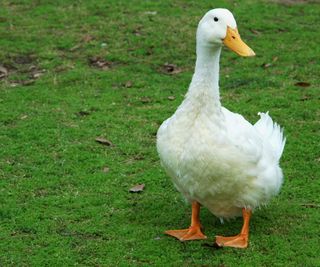
Disadvantages of Ducks in the Garden
While ducks for the garden can be advantageous, there are downsides, too. As with any animal, ducks are a responsibility. They will depend on you for food, water and safety for the duration of their lives.
Most domestic duck breeds cannot fly more than a couple of feet, but they still need to be contained. Because they can’t fly much, a low barricade of about two feet (60cm) is adequate. They also need a predator-safe enclosure for nighttime.
Gardening tips, videos, info and more delivered right to your inbox!
Sign up for the Gardening Know How newsletter today and receive a free download of our most popular eBook "How to Grow Delicious Tomatoes."
While they eat grass, ducks don’t nibble on most garden plants. They will, however, eat any lettuce you are growing if left uncovered, as well as other greens. Also, if allowed to roam in a vegetable garden, their big, flat feet can damage seedlings.
Frequently Asked Questions
Is Duck Poop Good Fertilizer?
Ducks roaming your yard and garden will deposit rich, natural fertilizer everywhere they go. You might not want to collect it and use it elsewhere, but their droppings will add nutrients to the soil wherever they move around.
Will Ducks Eat My Garden?
Ducks don’t have a taste for most garden plants besides grass. The exceptions are vegetable greens (especially lettuce) and certain fruits like strawberries. Use barriers to keep them away from these areas to ensure your edibles are safe.
Do Ducks Eat Slugs?
Yes, ducks love to eat slugs and snails. They provide valuable and natural pest control in gardens.

Mary Ellen Ellis has been gardening for over 20 years. With degrees in Chemistry and Biology, Mary Ellen's specialties are flowers, native plants, and herbs.
-
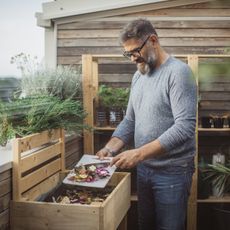 Urban Composting Guide: How To Compost In The Middle Of The City
Urban Composting Guide: How To Compost In The Middle Of The CityUrban composting does not have to be daunting. You can compost in the city, and maybe even try some urban worm composting!
By Mary Ellen Ellis
-
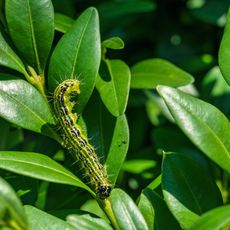 Shrub Diseases And Pests To Watch Out For
Shrub Diseases And Pests To Watch Out ForShrub diseases and pests can be challenging. Learn how to recognize and eradicate them before they can present a danger to your plants.
By Susan Albert
-
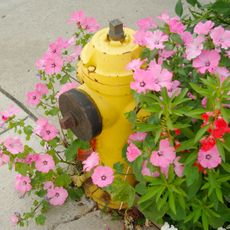 Landscaping Around A Fire Hydrant: Landscaping Tips And Safety Considerations
Landscaping Around A Fire Hydrant: Landscaping Tips And Safety ConsiderationsIt might not sound like the obvious choice for a landscaping project, but a fire hydrant can work with a bigger gardening vision. Follow our tips on landscaping around a fire hydrant
By Mary Ellen Ellis
-
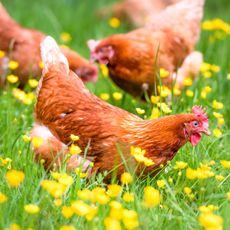 Planting For Chickens: Why You Should Plant A Chicken Garden
Planting For Chickens: Why You Should Plant A Chicken GardenIf you’ve never considered planting for chickens, this is your chance to enjoy their joyful benefits. We show you how to make an easy chicken garden
By Amy Grant
-
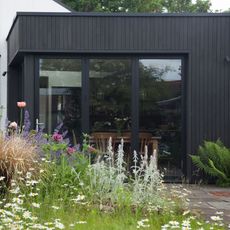 Dark Home Exterior? Choose The Right Plants With Our Expert Dark House Landscaping Tips
Dark Home Exterior? Choose The Right Plants With Our Expert Dark House Landscaping TipsIf the front or back of your house is very dark, what are the implications for the plants you grow? We reveal how understanding dark house landscaping can help you pick the right plants
By Susan Albert
-
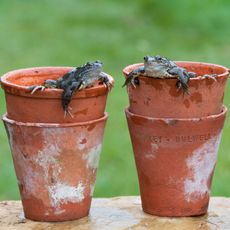 Best Plants For Frogs: 7 Plant Varieties To Bring More Froggies To Your Yard
Best Plants For Frogs: 7 Plant Varieties To Bring More Froggies To Your YardA frog-friendly environment is one of the key indicators for garden health – so if you want to improve the health of your plot, here are seven plants for frogs you need to try
By Janey Goulding
-
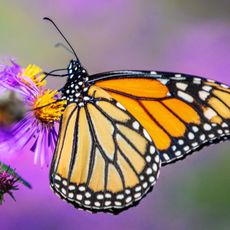 Support Your Area's Pollinators By Using Keystone Plants
Support Your Area's Pollinators By Using Keystone PlantsAn understanding of keystone plants is not just a great way to make sure your garden is as enticing as possible to pollinators – it’s critical for the future of key species. We show you how to raise your eco-awareness
By Teo Spengler
-
 Plant Hacks On TikTok That Are Actually Worth Trying
Plant Hacks On TikTok That Are Actually Worth TryingYou may have come across a few plant hacks online and wondered how many are worth your time. We round up the key plant hacks on TikTok that are every bit as good as they claim to be…
By Mary Ellen Ellis
-
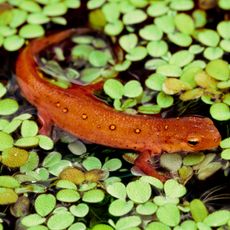 How To Create A Newt Habitat For Exotic Garden Wildlife
How To Create A Newt Habitat For Exotic Garden WildlifeIf you create a newt habitat, you’ll give your wildlife garden a boost while making friends with some highly engaging animals. We show you how easy it is to make room for newts
By Teo Spengler
-
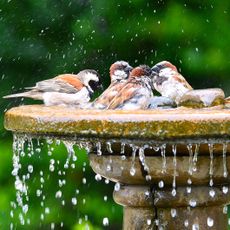 Don’t Make These 5 Bird Bath Mistakes If You Want More Birdies!
Don’t Make These 5 Bird Bath Mistakes If You Want More Birdies!Love your birdlife but failing to entice many feathered visitors? Check your backyard’s bathing facilities and make sure you avoid these classic bird bath mistakes
By Janey Goulding